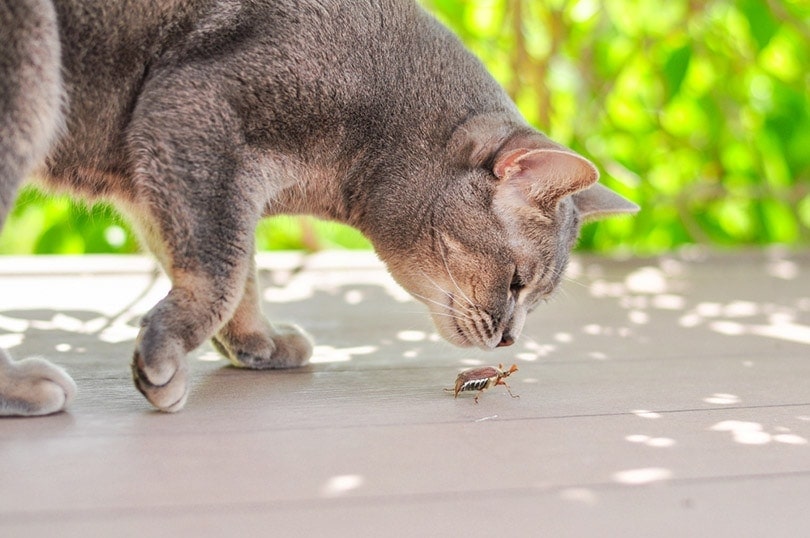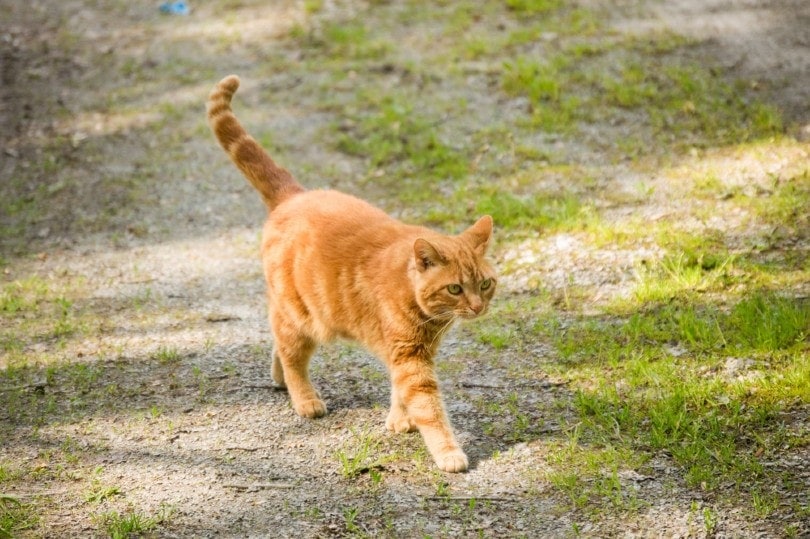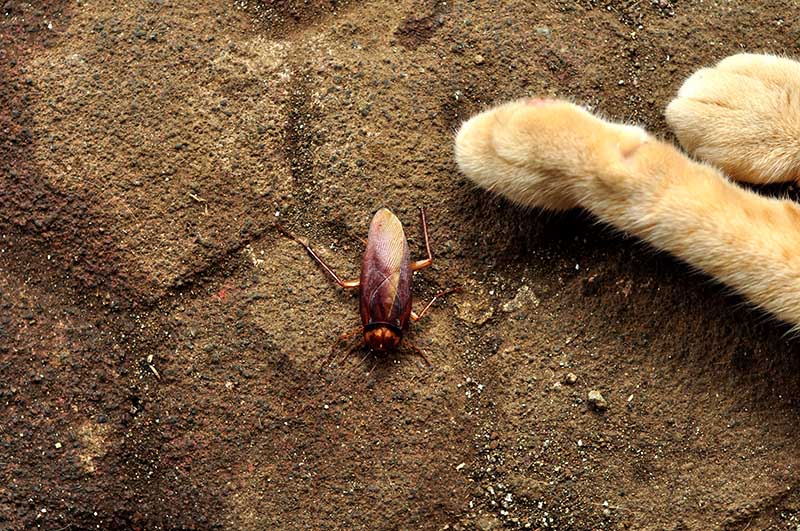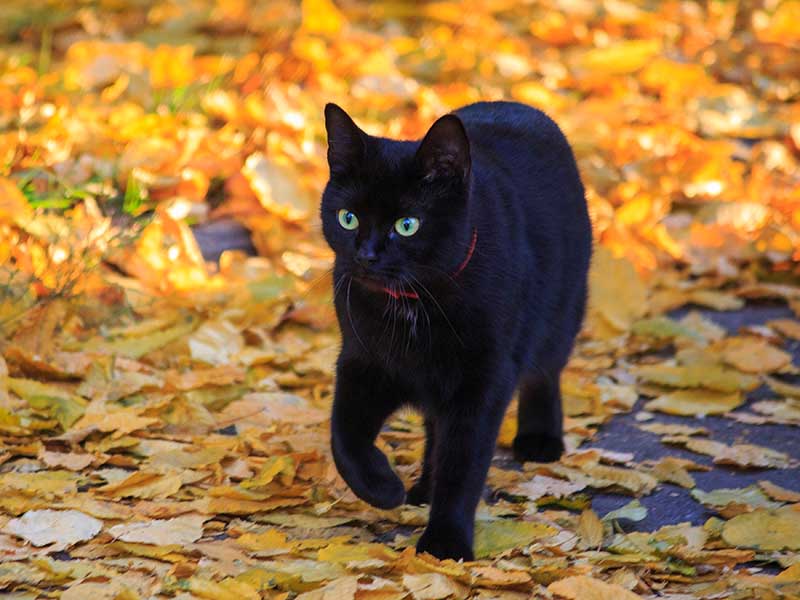VET APPROVED

The information is current and up-to-date in accordance with the latest veterinarian research.
Learn more »Click to Skip Ahead
Insects can be troublesome and annoying pests. You’ve probably seen your cat chase down a bug or two, and maybe they have even munched on one. Considering how frightening a cat must seem to a tiny bug, it would make sense if cats repelled bugs. However, that is not the case.
Cats do not deter bugs from entering your home; however, they may reduce the number of bugs in your home by hunting them. If you want to know more about a cat’s role in minimizing your home’s insect population, as well as the safety concerns associated with it, read on.

Cats May Minimize the Insect Population in Your Home
Cats have excellent hunting skills. If an insect has invaded your home, your cat will probably put those skills to the test. Your cat will likely bat a bug around for a while before eventually eating it. By hunting and eliminating any bugs that cross their path, your cat can reduce the number of insects crawling around your house. Even if they are unable to capture it and eat it, they are at least alerting you of the pest’s presence so you can toss it back outside.
Your cat is especially helpful for cutting down on bugs because they don’t need to be trained to do it. Your cat’s prey drive will kick in when they see a tiny intruder, encouraging them to go after any unwanted visitors.
So, while cats do not repel insects, they do a great job of keeping some of their numbers down.

Is it Safe for Cats to Eat Bugs?
Just because cats can hunt and eat bugs doesn’t always mean they should.
Some bugs are harmless for your cat to eat, such as flies, gnats, moths, and butterflies. Insects with hard exoskeletons (such as beetles) may be considered non-toxic, but their rigid covering may cause gastrointestinal upset. This is mostly a concern when cats overindulge.
Stinging insects can cause problems for your cat. Most injuries are likely to be sustained during the hunt, when the insect may sting to fight back. This can cause swelling and discomfort, in certain cases an allergic reaction, and if your cat licks the injury too much, it could cause an infection.
Spiders are one of the biggest concerns when considering cat safety. Some spiders are safe to eat, while others can be dangerous. Venomous spiders, like stinging insects, are more likely to attack when your cat is hunting them. The brown recluse and black widow are the most dangerous arachnids (excluding ticks) in the United States for cats and humans.
Signs of a Venomous Spider Bite
A spider bite from a black widow or brown recluse can lead to serious health issues such as organ failure, clotting abnormalities, and skin necrosis, while black widow bites can be fatal.
A black widow’s bite will affect the nervous system, leading to pain, staggering, excessive drooling, and vomiting. Black widow bites can be difficult to spot, but if you suspect your cat may have been bitten, reach out to your vet immediately.
The brown recluse’s bite is much easier to spot. It develops a blister within two to eight hours of the bite, forming a bullseye appearance, which may progress to skin necrosis in your cat. If the bite is treated promptly, the complications should be minimal.
Other signs of a spider bite may include shaking, diarrhea, weakness, pain, swelling, and bruising at the site of the bite, and fever. If a spider has bitten your cat, you should not try to treat it at home. You should get in contact with a vet right away to ensure that the best plan of treatment is taken for your cat.

Are Dogs Better at Keeping Bugs Away?
Dogs can be good at alerting their owners of pest problems; however, they are less likely to hunt bugs than cats are. Cats are one of the best pets for insect management because they are capable and often eager to hunt insects. Although cats do not repel insects, they may help in your bug control.

Conclusion
Cats may help reduce the insect population in your home, even if bugs are not repelled by them. Keep an eye out for any insects that might cause trouble for your cat, such as stinging bugs and spiders, and try to get rid of them safely. Together, you and your cat can make a great insect-hunting team!
See also:
- How to Identify & Treat Bug Bites on Your Cat (8 Tips & Tricks)
- How to Prevent Insect Bites on Cats? Vet-Verified Facts & Safety Guide
- Cats protect homes from invading insects – The Washington Post
- Poisonous Spiders in Arizona and Your Cat
- Good Pets for Pest Control – Arrow Termite & Pest Control
- Spiders Are Toxic To Pets | Pet Poison Helpline®
- Black Widow Spider Bite Poisoning in Cats | PetMD
- Widow Spider Envenomation: A Concern for the Curious Pet
- Spider Bites | VCA Animal Hospitals
Featured Image Credit: Dani Daniar, Shutterstock












